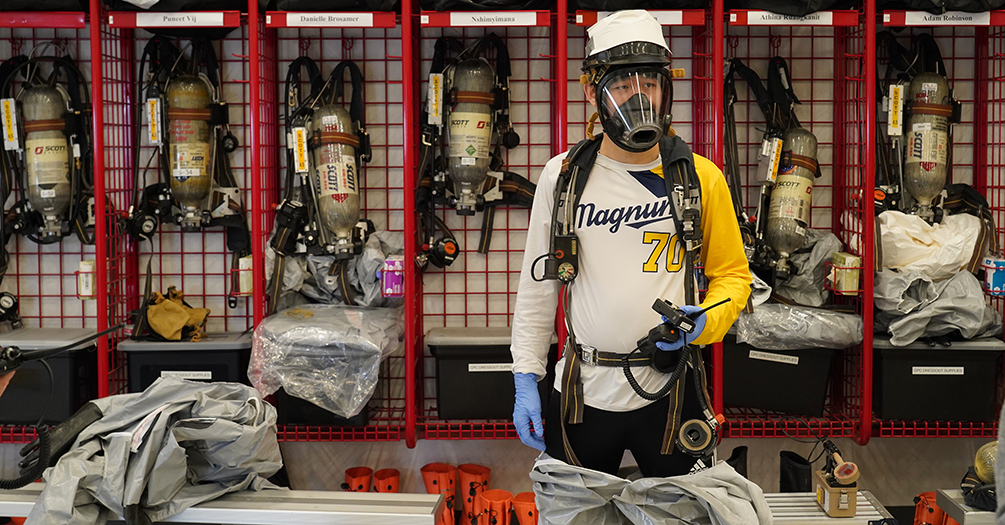COHSE receives $9 million NIOSH grant to fund education and training

The Center for Occupational Health and Safety Engineering (COHSE), housed within the University of Michigan School of Public Health, has received a five-year, $9 million grant from the National Institute for Occupational Safety and Health (NIOSH) to continue its pivotal role in training the future generation of occupational health professionals.
Since its establishment in 1982, the COHSE has been committed to enhancing the health and safety of workers in the US and globally.
“Addressing workplace hazards and promoting workers’ safety and well-being is key to ensuring a healthy and productive workforce and economy,” said Rick Neitzel, COHSE director and professor of Environmental Health Sciences and Global Public Health at Michigan Public Health. “This new funding for COHSE will allow the University of Michigan to continue to educate well-trained practitioners and researchers who can improve occupational health and safety among US workers.”
COHSE is composed of 27 faculty and researchers from the University of Michigan School of Public Health, College of Engineering, School of Nursing, and the Transportation Research Institute across the center’s four academic training programs: Industrial Hygiene, Occupational & Environmental Epidemiology, Occupational Health Nursing, and Occupational Safety Engineering and Ergonomics.
The funds from this latest grant will primarily support trainee tuition and stipends in the four core fields of study and build on the center’s tradition of educating aspiring professionals in a critical field that serves to prevent workplace illness and injuries.
COHSE is a NIOSH-funded Education and Research Center (ERC). ERC programs are university-based programs that offer multidisciplinary training with emphasis on resolving complex issues surrounding workplace safety and health. The centers train graduates with the necessary skills to adapt to the ever-evolving nature of work and occupational health practices.
NIOSH ERC programs across the country have demonstrated impressive results over the years, with 11,618 trainees graduating between 1977 and 2020. Graduates have made substantial contributions in the federal, state, and local government sectors in addition to academia, business, healthcare, industry, and labor organizations.
At COHSE, more than 400 trainees have gone through the program since the center’s establishment. This academic year, the center has 24 master’s students and 7 doctoral students enrolled in the program.
Neitzel says that the United States workforce has been underserved in terms of occupational health and safety. COHSE is specifically designed to counter that.
“We are facing a critical shortage of occupational safety and health professionals in the US, and this new funding will allow us to address that shortage by directly supporting graduate training for students interested in this area,” he said. “We want to train our students to be flexible thinkers in order to address the many existing and emerging health and safety challenges facing American workers. Without this effort, our workers will continue to experience a tremendous burden of injuries and illnesses.”
Photo Credit: Peter Smith Photography
Photo Caption: Chenxi Sun, MPH ’20, prepares to participate in the 40-hour Hazardous Waste Operations and Emergency Response, or HAZWOPER, training program in the winter of 2020.
- Interested in public health? Learn more today.
- Center for Occupational Health and Safety Engineering
Media Contact
Destiny Cook
PR and Communications ManagerUniversity of Michigan School of Public Health734-647-8650
